Online Education for Working Professionals
Refresh your fluid mechanics background and move into advanced concepts and applications.

Develop best-practice skills in aerodynamics analysis.
Aerodynamics, or the fluid dynamics of gases, deals with the flows observed in a wide
range of transportation systems, such as airplanes, cars and trains. This certificate
develops a foundation of fundamental fluid dynamics of gases from low to high speed
flows. Students will learn how to interpret the experimental and computational data
while developing theoretical understanding. Gain the skills to become an aerodynamics
engineer.
Request Info
How to Apply
3 Courses in 3 Semesters
| Length |
3 courses in 2-3 semesters |
| Effort |
3 hours per credit per week |
| Each course |
3 credits |
| Total credits |
9 |
| Course type |
Online or on-campus |
| Modality |
Watch class recordings on demand |
| Cost |
Based on credits and course type |
| Already enrolled? |
Speak with your advisor |
Curriculum
Progress quickly with a compact curriculum. Work with the program advisor to select
courses that fit your interests and pre-requisite skills.
Prerequisites
Check your preparation. Here are some of the pre-requisite courses for this certificate.
ME 3201 - Introductory Fluid Mechanics & Heat Transfer
Course emphasizes internal flow and modes of heat transfer: control volume analysis of mass, momentum and energy, pipe and duct flow, dimensional analysis, steady and unsteady heat conduction, internal convection and application of boundary conditions, and simple heat exchanger design.
- Credits:
4.0
- Lec-Rec-Lab: (0-4-0)
- Semesters Offered:
Fall, Spring, Summer
- Restrictions:
Must be enrolled in one of the following Major(s): Mechanical Engineering
- Pre-Requisite(s): (MEEM 2201 or ME 2201) and (MEEM 2911 or ME 2911) and MA 3160
Required Courses
Take a 3-credit required course.
ME 5210 - Advanced Fluid Mechanics
Develops control volume forms of balance laws governing fluid motion and applies to problems involving rockets, pumps, sprinklers, etc. Derives and studies differential forms of governing equations for incompressible viscous flows. Some analytical solutions are obtained and students are exposed to rationale behind computational solution in conjunction with CFD software demonstration. Also covers qualitative aspects of lift and drag, loss of stability of laminar flows, turbulence, and vortex shedding.
- Credits:
3.0
- Lec-Rec-Lab: (0-3-0)
- Semesters Offered:
Fall
- Restrictions:
Must be enrolled in one of the following Level(s): Graduate;
Must be enrolled in one of the following College(s): College of Engineering
Electives
Take 6 credits of elective courses. Select two courses, but only one at the 4000 level.
ME 5215 - Computational Fluids Engineering
This course introduces students into the theoretical and practical aspects of computational methods in fluid mechanics and thermal transport problems. Computer based tools are used to reinforce principles on advanced topics in thermo-fluids science.
- Credits:
3.0
- Lec-Rec-Lab: (0-3-0)
- Semesters Offered:
Fall
- Restrictions:
Must be enrolled in one of the following Level(s): Graduate;
Must be enrolled in one of the following College(s): College of Engineering
ME 5230 - Advanced Heat Transfer
Advanced topics on conduction, convection, radiation, and heat exchangers are covered. Emphasis is on problem formulation, exact solutions, empirical correlations/results, and on computational techniques.
- Credits:
3.0
- Lec-Rec-Lab: (0-3-0)
- Semesters Offered:
Fall, Spring
- Restrictions:
Must be enrolled in one of the following Level(s): Graduate;
Must be enrolled in one of the following College(s): College of Engineering
ME 5240 - Comp Fluid Dynamics for Engg
Introduces finite-difference and finite-volume methods used in solving fluid dynamics and heat transfer problems. Covers numerical grid generation, turbulence modeling, and application to some selected problems.
- Credits:
3.0
- Lec-Rec-Lab: (0-3-0)
- Semesters Offered:
Spring, in odd years
- Restrictions:
Must be enrolled in one of the following Level(s): Graduate;
Must be enrolled in one of the following College(s): College of Engineering
ME 5265 - Physical Gasdynamics
Equilibrium gaskinetic theory, chemical thermodynamics, introduction to quantum and statistical mechanics, flow with finite rate (e.g. vibrational energy relaxations, and chemical reactions), nonequilibrium kinetic theory, selected gaskinetic related computational methods.
- Credits:
3.0
- Lec-Rec-Lab: (0-3-0)
- Semesters Offered:
Fall, Spring
- Restrictions:
Must be enrolled in one of the following College(s): College of Engineering
- Pre-Requisite(s): MEEM 4901(C) or ME 4901(C) or ENT 4950(C) or Graduate Status >= 1
ME 4202 - Applied Fluid Mechanics & Heat Transfer
Intermediate fluid mechanics and heat transfer topics are covered. These include necessary considerations of: differential analysis of fluid flows based on Navier-Stokes equations, lift and drag, convective heat transfer in external flows, radiation, and simple considerations of condensation and boiling.
- Credits:
3.0
- Lec-Rec-Lab: (0-3-0)
- Semesters Offered:
Fall
- Restrictions:
Must be enrolled in one of the following Major(s): Mechanical Eng-Eng Mechanics, Mechanical Engineering
- Pre-Requisite(s): MEEM 3201 or ME 3201
Typical Schedule
The minimum completion time is one semester. Two or three semesters are recommended. Here
are typical schedules.
Sample Plan 1
| Fall |
|
ME 5210
ME 5230
ME 5215 |
|
Sample Plan 2
| Fall |
Spring |
ME 5210
ME 5230 |
ME 5240 |
Sample Plan 3
| Fall |
Spring |
| ME 5210 |
ME 5240 |
| Fall |
|
| ME 5230 |
|
Application Process and Admissions Requirements
Applications are reviewed on an individual basis using a holistic approach. Fill out
our free graduate application online to apply to any of our programs. Official transcripts and scores are not required
for the initial application, although you will need to upload them later.
Graduate School Admissions Process
Applying to the Graduate School is free (no application fees) and fast (no official transcripts, test scores, or letters needed to start). The application
process involves three easy steps.
See Admissions Steps
Graduate School Requirements
To be considered for admission to the Graduate School as a degree- or certificate-seeking student, you need to:
- have a bachelor's degree or its equivalent from an accredited institution, and
- be prepared for advanced study in your chosen field, as demonstrated by your previous
degree and your scholastic record.
See additional application requirements, including required materials:
Program Specific Requirements
Program Specific
- Admitted applicants typically have an undergraduate GPA of 3.0 or better on a 4.0
scale
- GMAT/GRE: Not required
- Preferred major: Mechanical Engineering or closely related technical field - Students
with degrees in other fields may be required to take preparatory courses
International Students
- TOEFL: Recommended Score of 79 iBT
- IELTS: Recommended Overall Band Score of 6.5
Admissions Decisions
Made on a rolling basis.
Prospective Students
- Prospective students and non-degree seeking students interested in obtaining a graduate
certificate must apply to the certificate program using the online application.
- Accelerated certificate options exist for current Michigan Tech undergraduate students in good standing and have
achieved at least junior-level standing or recent bachelor’s graduates of Michigan
Tech (less than two years).
- The number of credits earned prior to admission that can be counted are restricted.
Current Graduate Students
- Current Michigan Tech graduate students who are in a degree program do not need to formally apply. Current students must still submit the appropriate degree schedule in order to complete the certificate.
International Student Requirements
International Students must apply and be accepted into a degree-granting program in order to earn a graduate certificate. A non-refundable $10 processing fee per application is required.
See International Applicants
Interested in taking a single, online course? Enroll as a non-degree seeking student.
Upon completion of the Certificate the student should be able to:
- Solve the fundamental problems in aerodynamics given a physical description of a
system, following the standard process of
- define a suitable control surface or volume
- list the appropriate set of governing equations
- apply the necessary simplifications and approximations
- solve the governing equations analytically or numerically
- Apply the standard solution procedure to specific aerodynamics problems,
- Communicate the analysis process in aerodynamics, through written project reports,
including: statement of assumptions, derivation of governing equations, solution processes,
and validation of the solutions.
Michigan Tech was founded in 1885.
The University is accredited by the Higher Learning Commission and widely respected
by fast-paced industries, including automotive development, infrastructure, manufacturing,
and aerospace. Michigan Tech graduates deliver on rapid innovation and front-line
research, leaning into any challenge with confidence.
The College of Engineering fosters excellence in education and research.
We set out as the Michigan Mining School in 1885 to train mining engineers to better
operate copper mines. Today, more than 60 percent of Michigan Tech students are enrolled
in our 17 undergraduate and 29 graduate engineering programs across nine departments.
Our students and curriculum embrace the spirit of hard work and fortitude our founders
once had. Our online graduate courses are the same, robust classes taken by our doctorate
and masters candidates, taught directly by highly regarded faculty, with outstanding
support from staff. We invite working professionals to join these courses, bring their
own experience and challenges as part of the discussion. Leverage the national reputation
of Michigan Tech to advance your career in tech leadership.
Online Certified Instructors
Meet the online certified instructors. Students have the flexibility to review class
recordings later.
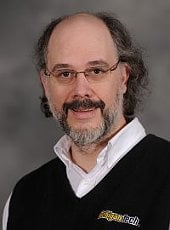
Teaching Statement
Dr. Allen teaches in such topics as fluid mechanics, principles of energy conversion, and microfluidics.
View Profile
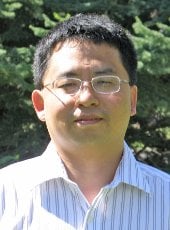
Teaching Statement
Dr. Cai is interested in fluid dynamics, aerospace and space engineering, gas dynamics, and electric propulsion.
View Profile
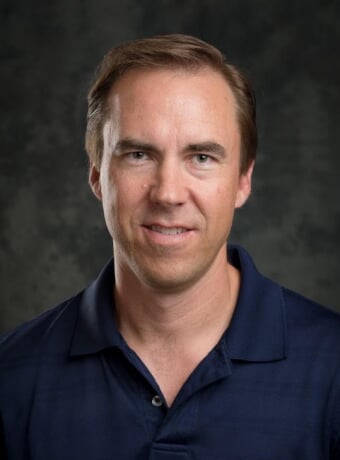
Teaching Statement
Dr. King's areas of expertise include space propulsion, plasma physics, and optical fluid diagnostics.
View Profile
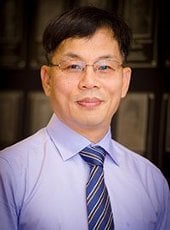
Teaching Statement
Dr. Lee is interested in turbulent and spray combustion, including high-pressure diesel and gasoline spray and fundamental turbulent flames.
View Profile
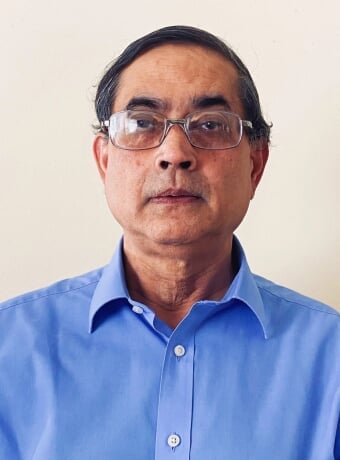
Teaching Statement
Dr. Narain has expertise in fluid mechanics, heat transfer, and system design.
View Profile
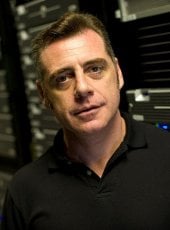
Teaching Statement
Dr. Ponta's area of expertise is in theoretical and computational continuum mechanics, vortex dynamics, and advanced numerical methods for fluid-structure interaction analysis.
View Profile
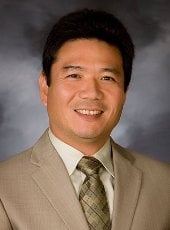
Teaching Statement
Dr. Tajiri lectures on applied thermodynamics, fuel cell technology, and other topics related to propulsion and energy conversion.
View Profile

Teaching Statement
Dr. Yang is interested in computational fluid dynamics, heat transfer, engine flow simulation, and aerodynamics.
View Profile








